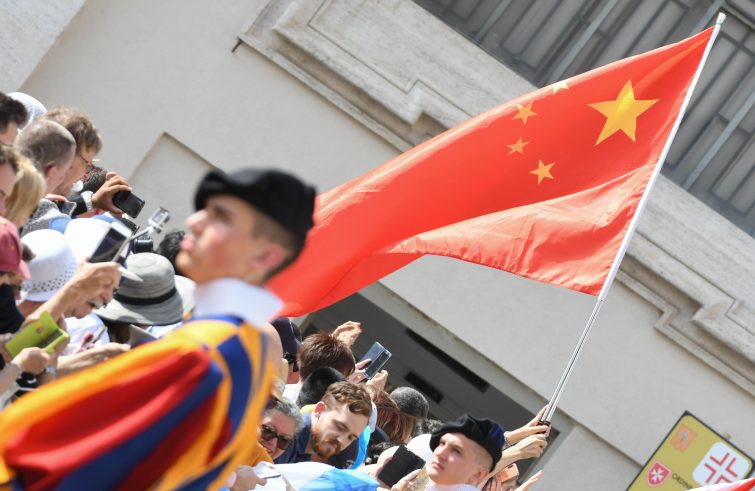
“Paradoxically, the renewal of the Agreement is probably more important than the same Agreement stipulated two years ago.” Francesco Sisci, sinologist, journalist, former correspondent for Italian newspapers from Beijing, senior researcher at China People’s University, comments on the decision taken by the Holy See and the People’s Republic of China to extend the Provisional Agreement on the appointment of Bishops for two more years. “This renewal is extremely important in the light of the interest shown by the U.S. government and of world countries, along with its timeliness”, the expert said.
 Why?
Why?
China is currently at the centre of strong international tensions. The renewal of this Agreement raises hopes of easing the ongoing tensions and avoiding a deterioration in international relations. The renewal of this Agreement is a message to the world that dialogue with China is a feasible option to make incremental progress.
Of course, it is not an ideal agreement, nor is the situation idyllic, but precisely for this reason, the progress made has greater significance.”
The second part of the communiqué released yesterday states that the Holy See considers the initial application of the Agreement to have been “positive.” Can you illustrate to us what these positive results are in concrete terms?
There are many. First of all, for the first time in 70 years, the entire Chinese Catholic Church is in unity with the Pope. Another positive outcome was the appointment of two new bishops jointly agreed with Rome, while during the pandemic Chinese Catholics, quarantined in their homes, were free to listen to Vatican Radio broadcasting, follow the Holy Mass celebrated in Santa Marta and listen to the papal homilies – which in my opinion is extraordinary. It had never happened before. It is fair to say that Covid brought Chinese Catholics and China further closer to Pope Francis. These positive results would not have been possible without the Agreement.
In the absence of this Agreement the Church would have more divided, and the Pope’s words would have remained distant.
And yet some say the exact opposite, namely that this Agreement aggravated the situation of Catholics in China. What do you think of these criticisms?
I personally believe that these critical situations stand as evidence of the relevance of this Agreement. I see no serious harm in these criticisms. They show that thanks to this Agreement some things are changing, and when faced with changes, there are always some harbouring doubts and perplexities. On the other hand, the claim that the Church is in a worse situation today leaves me perplexed. There is certainly a problem: the situation in China, also because of Covid and the deterioration of the international climate, is one of widespread alarm. But this situation is not specifically targeted against Catholics. It is a general problem.
How is it possible to overcome it? A crusade, a holy war? None of the kind. In fact quite the contrary: more dialogue is needed.
What is the purpose of this Agreement?
The final prospects are extremely substantial. It is necessary to appoint a hundred new bishops in China. Many dioceses are vacant, while in others many of the bishops are elderly and need to retire. This issue must be faced together and in accord, and not against the Chinese government. Its attainment is marked by difficulties, because an agreement must be reached on many names and circumstances, and four players are involved in these decisions: Rome, the central government, the local government and the local Catholic communities. Reaching an agreement between these four entities is not an easy task because they have been distant for a long time and are not used to talking to each other.
If steps forward are gradually taken, the Catholic Church in China will eventually grow and be of help to China.
In what way?
In China there is a widespread spiritual yearning. And there is a great spiritual void. Traditional religions have grown weak for historical reasons. Many people today are in search of the faith. If the Catholic Church manages to respond at least in part to this spiritual longing today, it would prove beneficial not only to the Chinese people and China, but for the reasons I mentioned before, to the whole world.











